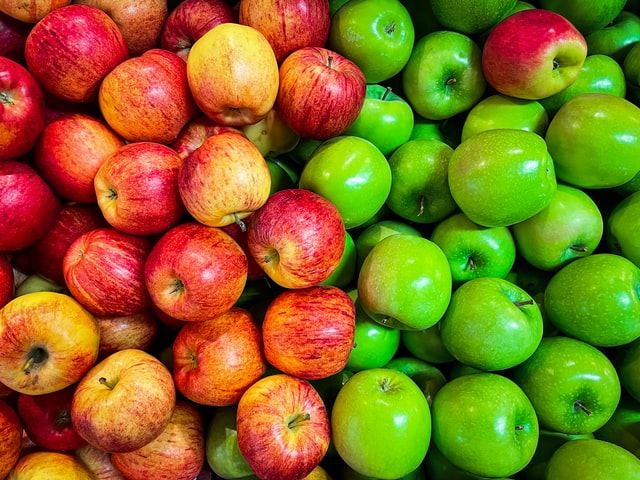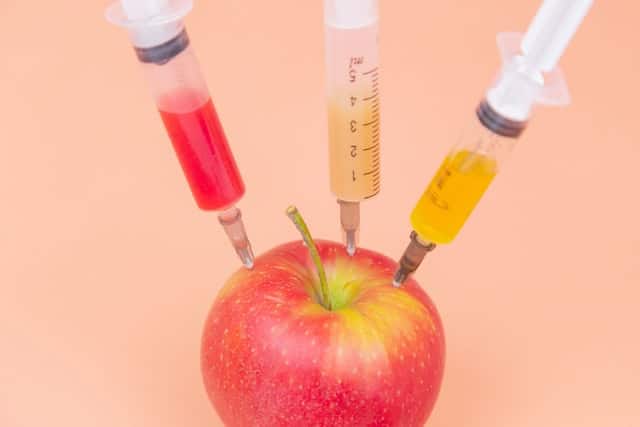Is apple good for diabetes? – Overview
“An apple a day keeps the doctor away!” I’m sure we have all heard this phrase at least once in our lifetime. But is it true? Does it work for everyone?
Special attention should be drawn to those for whom following a regular, strictly controlled diet is essential– for example for people with diabetes.
So our question is – Does an apple a day keep the doctor away from people with diabetes?
To answer you straightforwardly, most likely yes. I can give you several explanations as to why this is so. However, we should never forget that everything needs to be in moderation.
What is Diabetes?
I want to briefly clarify the pathogenesis behind this disease before moving on.
It is a chronic health condition where patients have difficulty neutralizing blood sugar levels and using sugar as fuel for energy, mainly because of some kind of problem with insulin.
Now, what is Insulin? It’s a hormone, which is responsible for lowering blood sugar levels.
There are two types of diabetes,
Type 1 Diabetes
An autoimmune disorder diagnosed in children or young adults, where the immune system attacks insulin-producing cells in the pancreas, leaving the body without insulin, which forces lifelong daily insulin injections to become an essential part of patients’ lives.
And type 2 Diabetes
It tends to be diagnosed in older populations. Here the body acquires resistance – meaning it doesn’t respond to insulin or the hormone is not produced in appropriate amounts.
This is the form that can be preventable with proper diet as it’s associated with obesity.
In both instances, without significant lifestyle modifications, constant hyperglycemia – high blood glucose, makes complications like heart, eye, and kidney diseases mostly unavoidable.
The lifestyle modifications needed to manage this disease involve much more than a simple diet and exercise. It includes counting calories, Glycemic indexes (GI), glycemic load, insulin dosages, blood sugar levels, and so on.
Even though fruits, in general, are known to be one of the healthiest snacks, which are always recommended by doctors, they do still have a lot of sugar.
Let’s get back to our main question: Is apple good for diabetes?

Is apple good for diabetes – Apples and Diabetes
As you might already know, apples are highly nutritious fruits, rich in a variety of vitamins, most importantly vitamin C, minerals, antioxidants, fibers, etc.
The amazing, sweet taste of apple of course comes from the carbohydrates – hence sugars, which people with diabetes should take into account.
The good news is that those sugars are “good sugars.” To make it more clear: an average apple contains approximately 25 grams of carbohydrates (20 of these are fructose and 5 are in the form of fiber).
Both of these are the “good sugars,” meaning they have much less impact on blood sugar levels and require much less insulin.
That is in comparison to sugars we encounter in chocolate, fast food, or some other fruits.
For example, fibers can slow the absorption of sugars lowering blood levels. There is even a study stating that taking dietary fibers regularly can be beneficial for the prevention of type 2 diabetes.
According to a meta-analysis, high-fiber diets reduce glycosylated hemoglobin and fasting blood glucose levels.
It’s important to remember that drying, baking and cooking in general breaks down the fibers in fruits, and all the listed benefits only count if the apple is fresh and whole.
Fructose
It’s the main type of sugar in fruits, consuming fresh fruit is not associated with a bad impact on blood sugar control, according to a Pubmed study.
Unlike honey and sucrose, fructose causes minimal changes in blood sugar. That’s why it is commonly recommended by some healthcare professionals as a “safe” sweetener.
The aforementioned Glycemic index (GI)
GI gives an approximate number of how the food will affect your blood sugar. The lower GI the better is your blood glucose controlled.
An apple, has a low GI, around 55 or under, this makes it a great snack for those using the glycemic index to guide food choices.
As already stated, apples are rich in antioxidants, one of which is the plant-based micronutrient – polyphenol. Apples are the most consumed sources of polyphenols in Western diets.
Polyphenol is the key
Polyphenol extracts have numerous studied antidiabetic effects, for example, reducing postprandial hyperglycemia, mainly by inhibiting intestinal glucose absorption.
Also, they have cholesterol-lowering activity, which in turn decreases the risk of cardiovascular mortality caused by longstanding diabetes.
According to a study from the University of Reading in the UK – “polyphenol and fiber in apples have the potential to reduce LDL”- also known as “bad cholesterol”, LDL builds up in the arteries and can cause heart attack and stroke”.
The probable beneficial effects of apples on insulin sensitivity and secretion are yet to be studied but they are considered promising ingredients to be integrated into the diet for the management of diabetes.
In all societies, besides genetic predisposition, the chief risk factor for developing type 2 diabetes is obesity and being overweight.
Apple is a diet-friendly food, being only 90 calories, that all can use regularly for a healthy lifestyle and prevention of diabetes to “keep the doctor away.”
Conclusion
Fresh, whole, non-peeled apples do have a lot of benefits for people with diabetes as they have a low impact on the blood sugar level and good effects on blood lipid levels.
Needless to say, moderation and consultation from healthcare professionals about your diet are a must.

As a nutritionist, I research, find and experiment with recipes, natural diets and meal plans for weight loss, bodybuilding, and detoxing.
